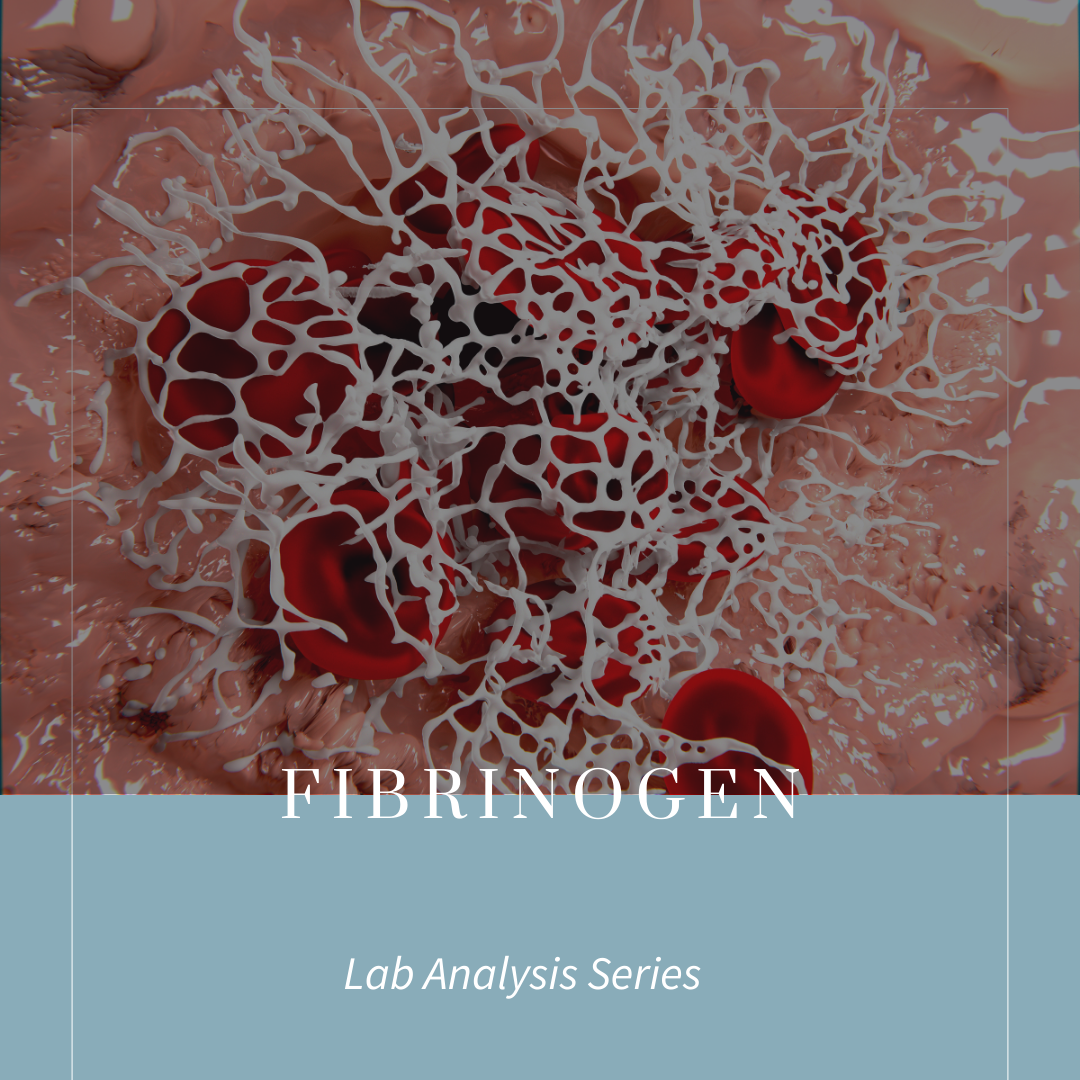Fibrinogen TestingFibrinogen is a glycoprotein also known as factor I. Each fibrinogen molecule has binding sites for clotting factors, platelets, and fibrin. Fibrinogen is the precursor for fibrin, the insoluble protein that form the structure of blood clots. During the coagulation cascade, thrombin cleaves fibrinogen into fibrin monomers. These monomers are polymerized to form insoluble fibrin strands. This forms a mesh of fibrin strands that traps platelets and other blood components to form a stable clot at the side of injury. Once formed, fibrin strands are crosslinked by activated factor XIII. Fibrinogen also plays a role in platelet activation and aggregation and interacts with von Willebrand factor. The production of fibrinogen and fibrinogen function is tightly controlled. The conversion of fibrinogen to fibrin is a critical and rate limiting step in clot formation. This step is regulated by thrombin. The function of fibrinogen, and the conversion of fibrinogen to fibrin is measured with the Thrombin Time (TT) test. Fibrinogen in PregnancyThe overall production of fibrinogen increasing in pregnancy. By term these levels can be double preconception ranges. Then, levels drop postpartum due to natural blood loss. Excess bleeding during delivery, either via blood loss in surgical delivery or hemorrhage, can cause a sharp drop in fibrinogen. This is primarily due to the increase in the polymerization of fibrinogen to fibrin to aid in clotting and healing post delivery. High Fibrinogen in PregnancyThere is limited data on the implications of high fibrinogen in pregnancy. Elevated fibrinogen levels have been associated with lower iron, vitamin E, and pyridoxine (vitamin B6) levels. Causes of High Fibrinogen in Pregnancy
Low Fibrinogen in PregnancyLevels <3 g/L (300 mg/dL) in pregnancy are a sign of coagulation abnormalities. Low fibrinogen is a reliable biomarker to predict postpartum hemorrhage in pregnant women presenting with HELLP syndrome. Low fibrinogen levels prior to delivery can be a predictive biomarker for postpartum hemorrhage. It may also be an independent marker of hemorrhage severity. Levels <200 mg/dL are associated with a 100% positive predictive value of developing severe postpartum hemorrhage. Causes of Low Fibrinogen in Pregnancy
Copyright © 2024 Functional Maternity, all rights reserved. The content in this article is not intended to be a substitute for professional medical advice, diagnosis, or treatment. Always seek the advice of your physician or other qualified health provider with any questions you may have regarding your medical condition.
0 Comments
Leave a Reply. |
Hi There!I'm Sarah Thompson, the author of Functional Maternity, and the upcoming book Beyond Results - A practitioner's Handbook to Effective Functional Lab Analysis in Pregnancy. Lab Tests
All
|


 RSS Feed
RSS Feed